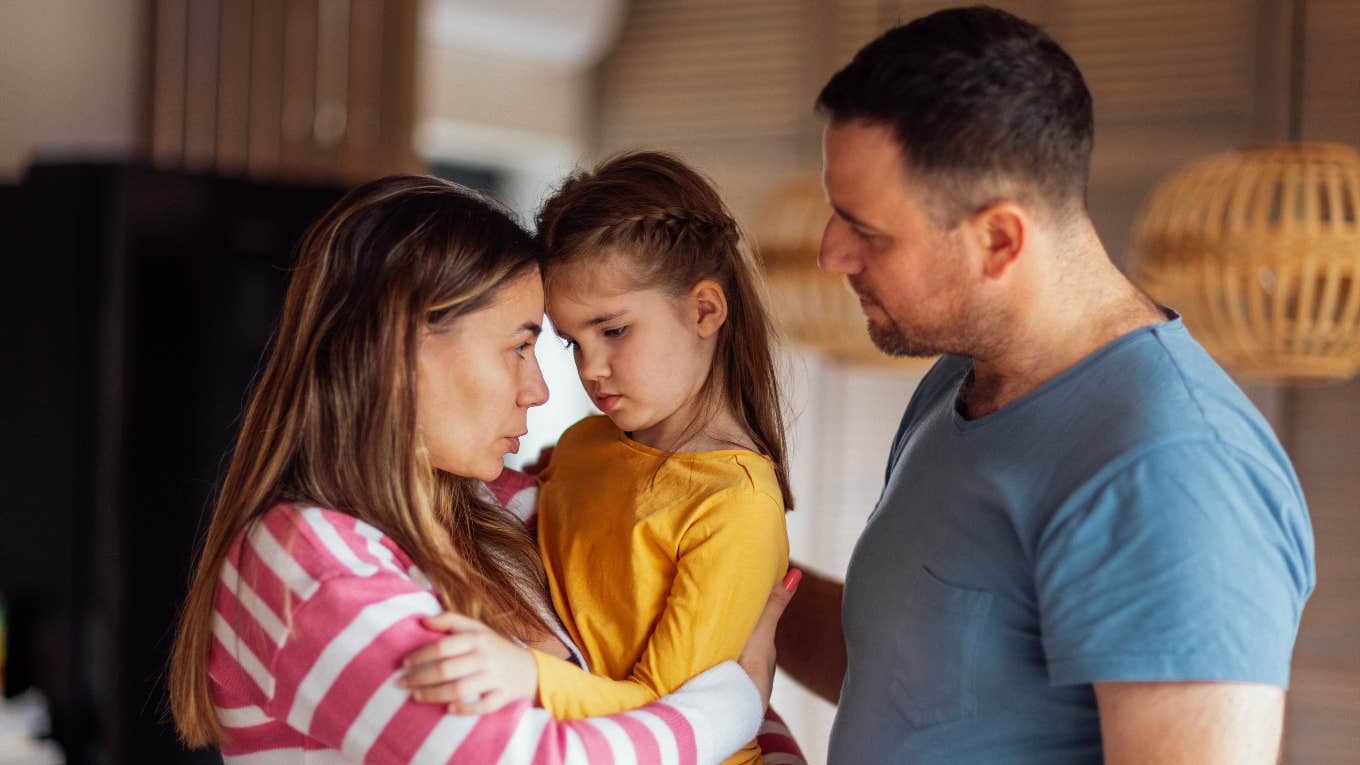Kids Who Grow Up To Be Emotionally Intelligent Adults Have Parents Who Did These 7 Things Throughout Their Childhood
It's all about giving them space to learn and discover themselves, even if it's uncomfortable.
 Dasha Petrenko | Shutterstock
Dasha Petrenko | Shutterstock Everywhere you turn, there's another story about how today's kids aren't learning resilience and are struggling with issues like anxiety — which is not exactly what you'd expect given how hands-on parents are nowadays, right?
So how can you instill emotional strength in kids? One parenting expert recently shared what she's gleaned on the subject from her lengthy career, and she says it all comes down to early childhood habits that foster one important skill.
Kids who grow up to be emotionally intelligent adults have parents who did these 7 things throughout their childhood.
Reem Raouda is a parenting coach who teaches the child-rearing method known as conscious parenting. This approach focuses on relationships, kids' individualism, and parents' self-development, especially when it comes to letting go of their own egos, desires, and attachments.
In a recent article for CNBC, Raouda addressed a common situation in today's achievement-focused world — kids who are little prodigies when it comes to excelling at school, sports, or other endeavors, but often lack resilience and emotional strength.
Taking stock of the more than 200 families she's worked with in her career, Raouda said she's noticed that parents whose kids excel at emotional intelligence tend to have seven key practices in common that they all began implementing early in their child's life.
1. They understood the power of silence.
"They gave their child space to process their feelings and trust their inner voice," Raouda wrote. This means comforting kids when they're upset by sitting quietly beside them, without intervening verbally. That silence, while sometimes uncomfortable, allows kids to parse through their emotions and thoughts on their own — a vital skill.
2. They named emotions early and often, especially their own.
 fizkes | Shutterstock
fizkes | Shutterstock
This practice is about modeling for kids how to manage their emotions, and it all starts by simply naming them, rather than acting out. Speaking your feelings out loud — "I'm frustrated" or "I'm happy" — shows your kids how to identify their own emotions, as well as how to express them in constructive ways, rather than avoiding them.
3. They offered apologies to their child when necessary.
This is perhaps one of the biggest sticking points nowadays — the refusal by many parents to do this seems to be part of what's fueling the wave of estrangement that keeps intensifying. Raouda said this practice shows kids that mistakes are normal and that owning them is a strength, all while building vital trust between parent and child.
4. They didn't force manners like 'please,' 'thank you' and 'sorry.'
This one may sound a bit counterintuitive and Raouda is not advocating for not teaching your kids manners. But much more powerful than constantly reminding them to say these phrases is to model them. She says that when they forget, saying "thank you" for them is a gentle reminder that eventually sticks in their minds as a sort of reflex, rather than a punitive step to follow.
5. They didn't dismiss small worries.
 fizkes | Shutterstock
fizkes | Shutterstock
They may seem silly to us, but little kids' worries and fears feel very real to them. Validating them, rather than ignoring them or dismissing them, teaches kids to do the same for themselves — to own their feelings and take them seriously, which ultimately teaches them self-worth.
6. They didn’t always offer solutions.
This is arguably one of the most important things for parents today. After being left to our own devices as kids to such a large degree, Gen X and Millennial parents often reflexively solve their kids' problems for them.
This deprives them of opportunities to learn, however. Raouda said asking kids something like "What do you think we should do?" instead helps bolster their independence.
7. They embraced boredom
 Tatiana Buzmakova | Shutterstock
Tatiana Buzmakova | Shutterstock
No, this isn't that dismissive old saw that "only boring people get bored" that so many of our Boomer and Silent Generation parents handed us as kids. Rather, it's about essentially allowing kids to get comfortable with being uncomfortable, which in turns helps them develop skills for creativity, problem-solving, self-management.
Perhaps most crucially of all in our technology-saturated times, Raouda said it helps kids "[learn] to enjoy their own company and find joy in simple moments, like staring out the car window instead of needing a screen."
John Sundholm is a writer, editor, and video personality with 20 years of experience in media and entertainment. He covers culture, mental health, and human interest topics.
